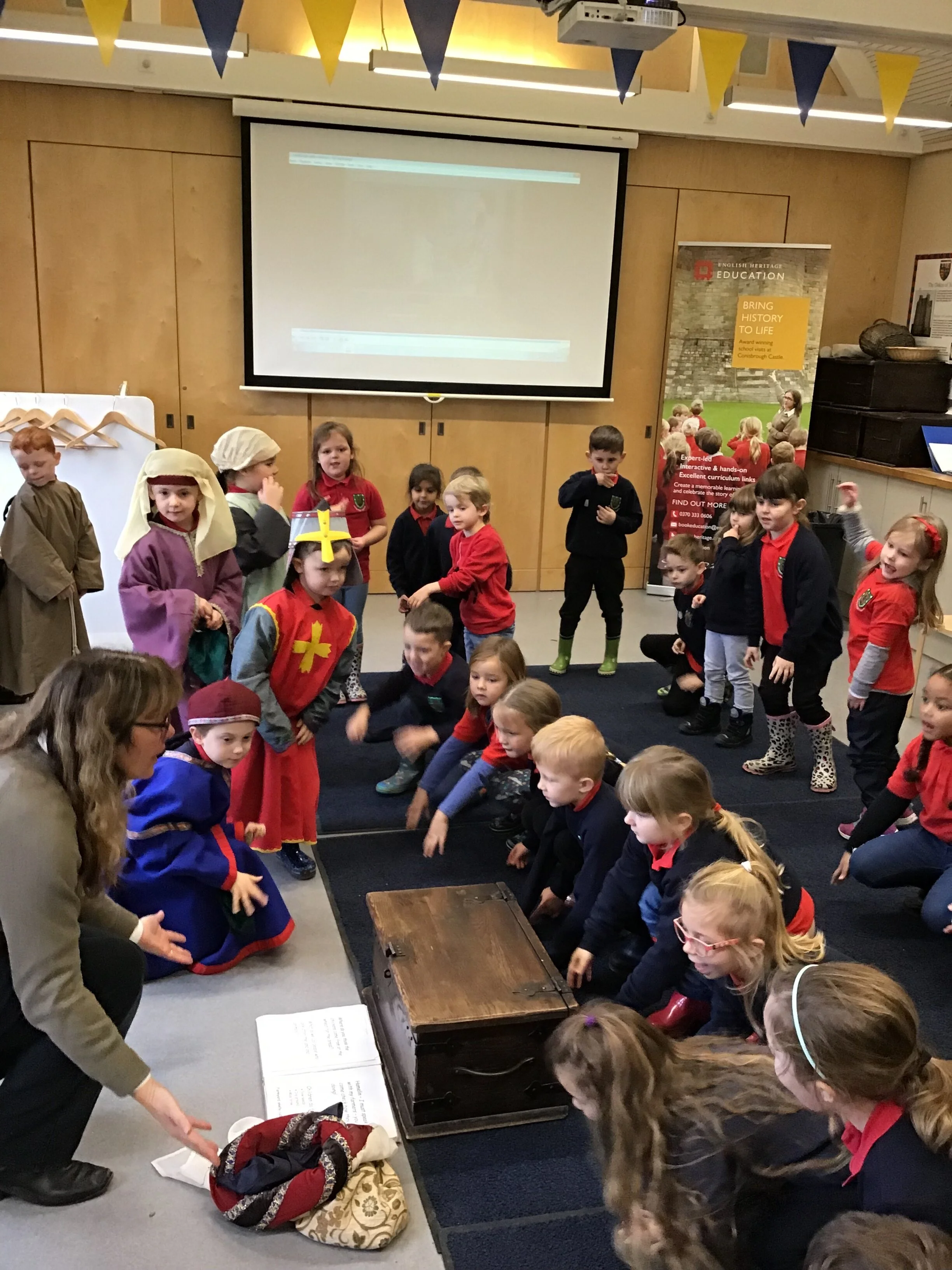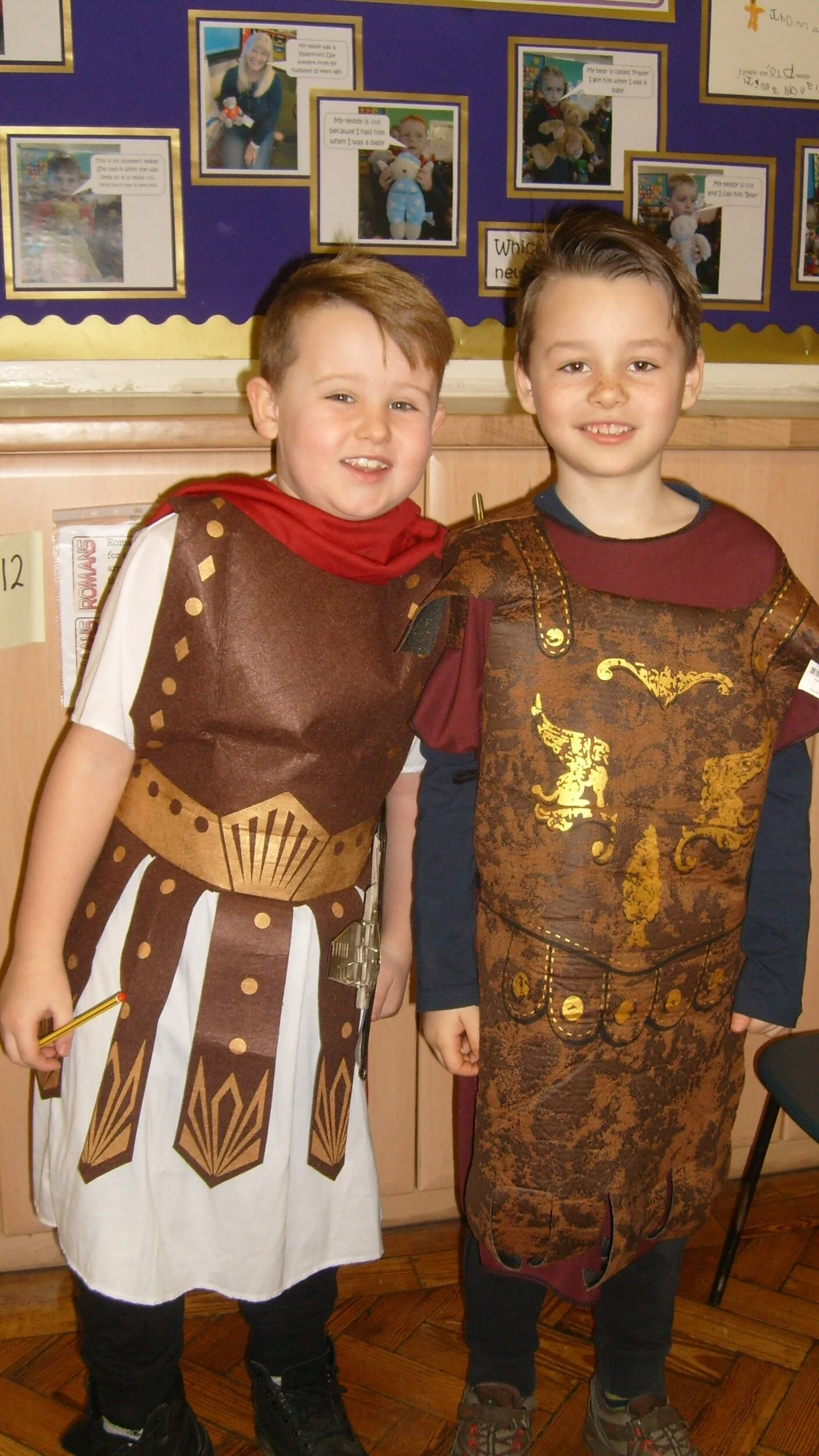
History
The more you know about the past, the better prepared you are for the future.”
Theodore Roosevelt
History
Encouraging children to see themselves as historians discovering how people’s lives change through time
At Loxley, children show a fascination in our history curriculum. Their curiosity leads to an ever building bank of knowledge of historical facts, which spiral outwards from local archaeological sites of national import to global events on other continents. Our enquiry-based curriculum enables children to see themselves as historians; questioning, researching and making links in their learning both chronologically and across the curriculum.
A Deep, Broad and Balanced Experience
Loxley Primary School delivers a deep, broad and balanced history curriculum, which goes beyond national requirements. We enrich the children’s learning at Loxley by encouraging the children to see themselves as historians, learning from high quality, tangible experiences. We offer all pupils the opportunity to learn through enquiry-based learning both in the school environment and further afield, benefitting from staff expertise, making links with local historians, as well as visiting and exploring local places and learning about local events.
A Bespoke Curriculum
In line with our tradition of ‘aiming high together’ we build upon the ongoing research, enthusiasm and expertise of our school staff, finding out about local historical events which shape our children’s world. Some of the more bespoke elements include studying Robin of Loxley, finding out about the origin of local carols, such as Spout Cottage as well as learning about some of the local heroes and events pertinent to Sheffield. We work in partnership with local groups to promote our area’s heritage, such as Friends of Loxley Cemetery, to commemorate certain events in the year including Remembrance Day.
A short story, based on the Sheffield Flood, has also been written and illustrated by members of staff and has been accompanied by a teacher’s pack linking to the school’s English rationale. This has been used as a reading sequence in English.
Our History Concepts & Strands of Learning
Roman Day
Civilisations and Cultures
In this strand of learning, pupils progress from an initial starting point of life in a castle in the Middle Ages (Y1), to an important module that baselines heritage studies in preparation for years 3 – 6 (Local Heroes, Y2). Comparisons are drawn between local sites (Conisborough – Sheffield Castle) and how change brought about in Sheffield as a result of the Civil War – the loss of the castle – caused the town to expand in different ways.
The C & C strand is heavily emphasised in Year 3 to actively allow comparisons between ancient global cultures (Egyptians – Romans) and the utilisation of evidence interpretation in British history (Romans – Stone Age).
As the strand progresses, links are stimulated between this evidence gathering in relation to the Mayans (Y4: followed in Y5 with Settlers & Invaders, which also allows for lifestyle comparisons with earlier units). Shared questioning throughout all units, specifically around lifestyle, religion, employment, and rise and fall enhances understanding and promotes the shared similarities and collected differences between cultures. Ancient Greeks (Y6) completes this process at a primary level by conjoining all earlier materials together surrounding global civilisations.
We ask our learners:
What makes a civilisation? How did they change & develop? What do we know about them? What evidence do we have of them today? What has their impact been? How did they end (Year 3 onwards)?
A model of how Sheffield Castle might have looked
Change Where I Live
Pupils learn about the inherent changes both local and nationally in this conceptual theme. Beginning with Castles (Y1), pupils learn how building use varied over time as lifestyle changed. Again, much underpinning occurs in the Local Heroes unit (Y2) which prepares learners for future local history work by touching on individuals such as Robin Hood (Y5) and Women of Steel (Y5).
In a chronological and over-arching UK unit, Y4’s Crime and Punishment module seeks to explain how changes brought about progression in the judiciary system, whilst emphasising that crimes often linked to the society they were part of (eg. highwaymen etc). The Sheffield Flood unit (and accompanying English work) enhances awareness of a local event that has had lasting ramifications for our city and uses first hand sources to draw conclusions. By Year 5, pupils are prepared to undertake lengthier studies that utilise primary and secondary evidence in historical reasoning tasks about their locality (the Riddle of Robin of Loxley). Direct links are again fixed back to the Y2 Local Heroes work. The final unit of study in Y6 on migration brings together the idea of positive influences through this change and utilises elements taught in all of the preceding years.
We ask our learners:
What’s special about Sheffield? How have things in our area changed over time? What industry or invention has there been locally? What evidence can we see today (including buildings / lifestyle and so on)?
Mary Seacole
People who Changed the World
Children are shown important figures from throughout history, beginning with the relatively modern Space Race figures of the mid-20th century. This develops into Y2 as discussion is made into key figures of the Victorian era in the development of nursing during the Crimean War (Nightingale & Seacole).
Progressing into KS2, Y3 & 4 each have focal points linked to influential individuals / contributors (such as Howard Carter – Ancient Egyptians, Julius Caesar – Romans or John Gunson – Sheffield Flood) within other Civilisation & Culture oriented units. The strand evolves in Y5 towards Robin of Loxley and the interpretation of his non-identity in history and re-imagining as part of the Robin Hood mythos.
It is vital to emphasise the importance the focus that Loxley Primary has on people who changed the world as not being specifically engaged with those who are famous. Many figures in the majority of our units are ‘every day’ people who contributed to the benefit of others. Examples of this would include the Women of Steel and serving soldiers (Y5 WWII / Remembrance), families surviving or being lost in the Sheffield Flood (Y4/5), migrants of the twentieth century (Y6) and local figures such as Frank Thorpe (local carol composer).
We ask our learners:
What have individuals you have studied achieved or contributed (including innovators, women, pioneers and those sharing diversity)? What contribution have every day heroes made to our lives today (locally or nationally)?
Sheffield Flood illustration
by Tasmin Torrington
Historical Events
The historical events conceptual strand seeks to ask questions about how an individual happening changed history. This begins with the world-changing Moon Landings before in Y2 honing into a national occurrence that affected a specific locale (Great Fire of London).
The strand moves closer to home still in Y4 with the delivery of the Sheffield Flood unit and its impact on Sheffield, and in particular the Loxley Valley. Comparisons are drawn at all stages as to the impact of individuals’ lives as well as the environmental impact, and also its legacy.
This continues with building the awareness of emotive elements of human stories in Y5 (WWII / Remembrance) and finally in Y6 how the reasoning for, and impact of, migration has benefitted both individuals and society.
We ask our learners:
How do we know about these events? What is their significance and impact? What different perspectives and narratives can we find about a certain event? What was their impact on the world in the past? What is their legacy today?
An Ambitious Curriculum
We cover themes both from within, and extending beyond, the National Curriculum as well as issues with relevance today including remembrance, local heritage and black history.
Bringing History to Life Through First Hand Experiences
Immersive learning through educational visits and themed days brings history to life. These experiences can then be built upon in other areas of the curriculum, such as Reading, Writing or Maths.

What Will a Loxley Historian Look Like?
We endeavour to give the children at Loxley a wide range of experiences in history. In aiming high together, we aspire that during their time at our school, a Loxley historian will develop the following;
o Analytical thinking
o Communication skills
o Problem solving skills
o Able to retrieve historical facts and place them in a chronology
o Independent research skills
o A deep knowledge and understanding of local history








